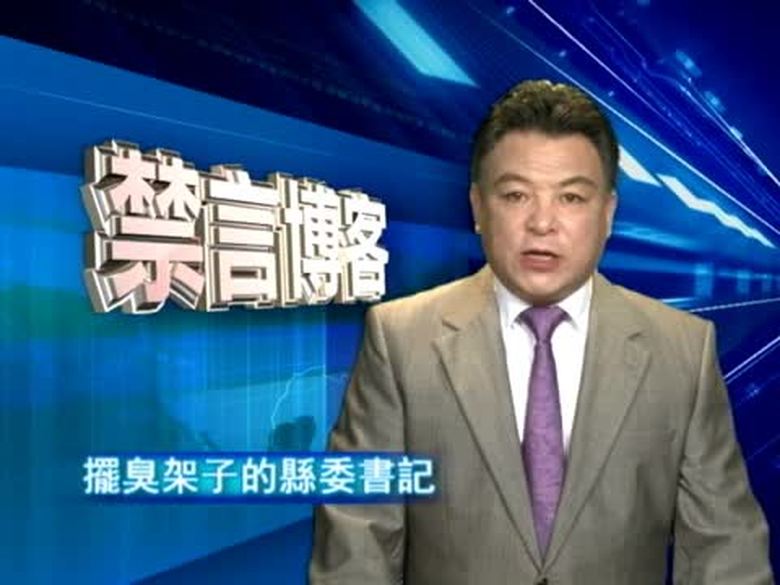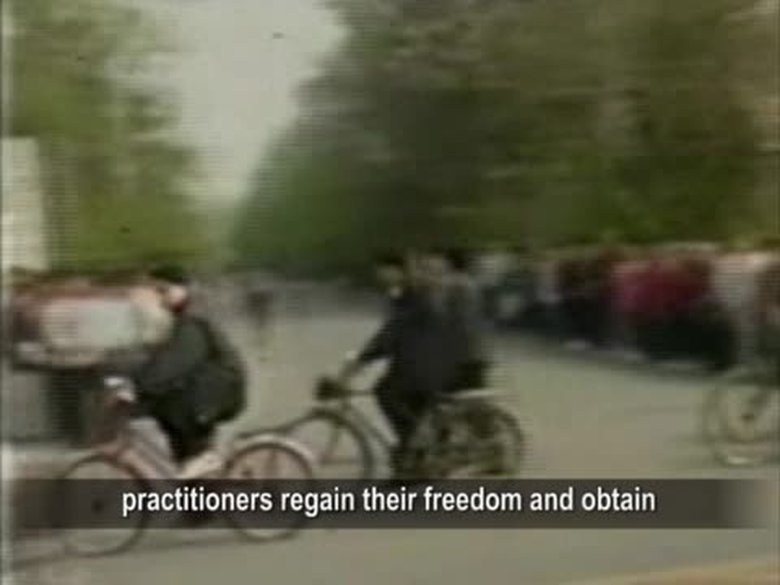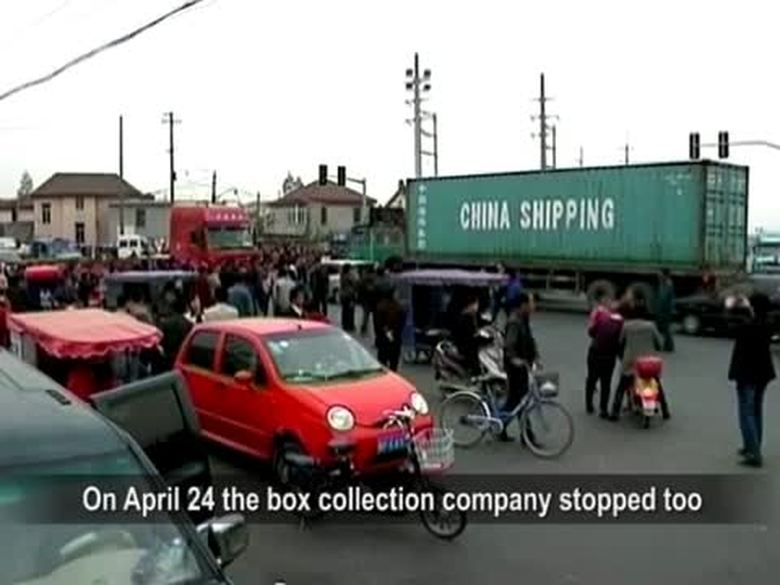【新唐人2011年4月23日訊】中國大陸財政部最近公布,將個人所得稅起徵點從目前的每月2000元人民幣,提高到3000元,同時將9級稅率改為7級,這項調整可能在今年下半年開始實施。不過,經濟學家們指出,這次個人所得稅的調整,對於緩解貧困和縮小貧富差距影響其實並不大。
對於個人所得稅起徵點從2000元提高到3000元,有調查數據顯示,88.6%的人表示應該上調到5000元以上。中國著名經濟學家茅於軾甚至認為,起徵點應該提到8000元。
《歐洲時報》指出,對中低收入民眾來說,起徵點和稅級的調整,對他們的收入水平影響並不大。中國人除了繳納個人所得稅之外,其實更多還是在購買商品時包含在價格裡的消費稅、增值稅等間接稅,對中低收入者相對負擔更大。
此前,山東濟南政協委員潘耀民提出,一個饅頭裡有高達17%的稅收,引發了關注。 據山東稅收部門解釋,中國沒有“饅頭稅”,政府收的是“增值稅”。
美國南卡羅萊納州大學管理學教授謝田表示,山東稅務部門的解釋並不錯,當地饅頭被徵收的屬於“增值稅”。他分析說,增值稅具有隱蔽的效果,但對消費者不甚公平:
謝田(美國南卡羅萊納州大學管理學教授):“‘增值稅’有一個最大的不好之處就是對中下層收入的人是不公平的,實際上是負擔加重的。
大陸財政部數據顯示,2010年“個人所得稅”僅佔中國總稅收的6.6%,“消費稅”和“增值稅”卻佔總稅收的51.4%。其他“間接稅”包括營業稅、關稅、土地稅、資源稅、城建稅、社會保障稅等繁雜稅種。
美國《福布斯》雜誌2009年評出,中國稅負痛苦指數名列全球第二,僅次於法國。2010年中國的個人所得稅收入為4837億元。北京經濟學者曹思源指出,中國65%的個人所得稅來自工薪階層,這無異於“劫貧濟富”。
但是,這次個人所得稅調整,對於高收入群體來說幅度並不大。
《華爾街日報》文章指出,月薪10萬2千元以上的稅負,最高增幅只有5%左右。而且,中國沒有財產稅,沒有遺產稅。富豪們大多通過權力和資源壟斷,擁有大量的隱性灰色收入。
中國學者程曉農:“灰色收入主要指的是各級幹部在工資收入以外的其他收入,包括接受的賄賂,還有各種以饋贈名義贈送的禮,以及以『招待』的形式幫他支付的各種費用,包括公費旅遊、公費出國、包括幫他們國外的子女支付各種費用,這都算灰色收入。所謂灰色是說這些收入從來不申報個人所得稅。”
另一方面,英國《金融時報》4月21號指出,聯合國的極端貧困標準是日收入不足1.25美元,按照聯合國的標準,中國大約有2.54億人仍生活在極端貧困線以下,佔中國總人口的20%。
聯合國有關組織將“基尼係數”0.4定為貧富兩極分化、導致社會動盪的“警戒線”。中國的“基尼係數”已從1987年的0.32升到2009年的0.47,超過國際警戒線的水平。而中國目前的通貨膨脹、物價飛漲,正在進一步加劇貧富兩極分化。
新唐人記者李元翰、王明宇綜合報導。
China to adjust personal income tax, experts: hard to narrow the wealth gap
China's Ministry of Finance recently announced that
personal income tax threshold is raised from
RMB2000/month to RMB3000/month and tax rates
are decreased from 9-grade to 7-grade. This change
might take effect by the second half of year.
But economists said, that this personal income tax
adjustment won』t be effective to alleviate poverty
or to narrow the wealth gap.
As to the personal income tax threshold
which is raised from RMB2000 to RMB3000,
some survey data shows, 88.6% of the respondents
believe that the threshold should be over RMB5000.
Mao Yushi, a famous Chinese economist,
believed that the threshold should be RMB8000.
European Times said, the adjustment to tax rates
and threshold has little effect on low and medium
income groups』 lives. Besides personal income tax,
Chinese people pay more in indirect taxes like
consumption tax and value added tax, which are
heavier burdens to low and medium income groups.
Previously, Pan Yaomin, a CPPCC member in Jinan
City, Shandong Province, said that there is a 17% tax
in a steamed bun, arousing concerns. But
according to Shandong』s tax administration, there is
no “bun tax” in China, but only value added tax.
Xie Tian, a professor of management at the
University of South Carolina in US, said,
the explanation from Shandong』s tax administration
is tricky to consider buns』 tax as value added tax.
He analyzed that value added tax is not open
to public and is unfair to consumers.
Xie Tian (professor of management at the
University of South Carolina in US): “The trouble with
value added tax is that it is to add burdens on
low and medium income groups, which is unfair.”
Data from China』s Ministry of Finance shows, that
the “personal income tax” is only 6.6% of the total
revenue in 2010, but “consumption tax” and
“value added tax” are 51.4% of the revenue. Other
“indirect taxes” include sales tax, tariff, land tax,
resource tax, construction tax, social security tax, etc.
According to US Forbes』 report in 2009, China
ranked second after France in the tax misery index
list. China』s total personal income tax in 2010 was
483.7 billion. A Beijing economist Cao Siyuan said,
China』s 65% of personal income tax comes from
wage earners, which is to
“rob the poor and help the rich”.
But this personal income tax adjustment has
little impact on high-income groups.
According to Wall Street Journal, the amplitude of
tax burden is at most 5% to those who earn over
RMB102,000/month. Also, China does not have
property tax or inheritance tax, meaning that
the rich can have plenty of gray income by
using power and resource monopoly.
Cheng Xiaonong, a Chinese expert, said:
“Gray income means income besides salaries
of cadres at various levels, including bribe, gifts and
various fees paid by the name of “entertainment”,
like travels and tours abroad at public expense
and their children』s various fees in foreign countries.
To call these incomes gray is because they
never report personal income taxes.”
On the other hand, UK Financial Times pointed out
on April 21st, that according to United Nations』 (UN)
standard of extreme poverty, China has 254 million
people (20% of the total population) who lives in
extreme poverty with less than $1.25 per day.
UN』s related organizations set the “Gini coefficient”
0.4 as a “warning line” of polarization between
rich and poor and social instability. China』s
“Gini coefficient” has increased from 1987』s 0.32 to
2009』s 0.47, beyond the international warning line.
The inflation and soaring prices in current China
are further widening the wealth gap.
NTD reporters Li Yuanhan and Wang Mingyu
看下一集

【禁聞】調查:七成中國人覺“勉強餬口”

【禁聞】藥家鑫判死刑 民意“勝利”或正常

【禁聞】學者評药家鑫“激情杀人”判死刑

【禁聞】學者評药家鑫“激情杀人”判死刑

【禁聞】學者評藥家鑫“激情殺人”判死刑

【禁聞】「一國兩豬」內外有別

【禁言博客】擺臭架子的縣委書記

【禁言博客】擺臭架子的縣委書記

【禁聞】華人眼中的425上訪 信仰的力量

【禁聞】從埃及到中國——訪人權活動家夏菲

【禁聞】學者:上海集卡司機罷工讓中共害怕

【禁聞】學者:上海集卡司機罷工讓中共害怕

【禁聞】中國家庭教會戶外禮拜 遭當局打壓

【禁聞】超生游擊隊 躲一子政策 居荒山12年

【禁言博客】打擊卡扎菲要明白的幾件事

【禁聞】“工資翻番論”民眾無信心








